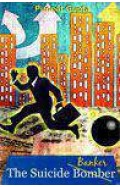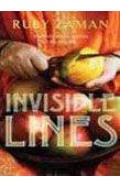- Home
- Books
- Sale
- 11.11 Sale UPTO 90% OFF
- 45% OFF
- Current chronicles: A basic reforms package for Pakistan
Current chronicles: A basic reforms package for Pakistan
By: Mirza Shahnawaz Agha
-
Rs 825.00
- Rs 1,500.00
- 45%
You save Rs 675.00.
Due to constant currency fluctuation, prices are subject to change with or without notice.
The Judiciary, the armed forces, the civil bureaucracy and the Parliaments together comprise government and they consume eighty-two per cent of all the taxes and borrowings this country collects annually. From an economic view this in effect means that we as a Nation State are spending 82% to manage 18%! The text of the book challenges this status quo based on the ideology of the State and offers solutions that would reverse this dilemma. The Author seeks that reforms being essential should be considered and the power to cause this change must be reverted back to the people who are not truly represented. He claims that the assemblies are made up of people from captive constituencies and defend the status quo which is neither political nor democratic.The book seeks to radically re-legislate laws that we follow as they were made on the colonial philosophy of law making where people are servants and the institutions are rulers. The laws that cause contempt, subversion and sedition must all be watered down to allow for reforms that can catapult Pakistan to the front end of civilisation and development. Towards the reforms package the book seeks 100% urbanisation and land management based on productivity instead of the present structure. It seeks corporate farming, corporate mining, industrial parks and tourism as prime revenue generators. The urbanisation plans warrant converting population areas into municipal companies and as a product quoted on the stock exchanges.
The Judiciary, the armed forces, the civil bureaucracy and the Parliaments together comprise government and they consume eighty-two per cent of all the taxes and borrowings this country collects annually. From an economic view this in effect means that we as a Nation State are spending 82% to manage 18%! The text of the book challenges this status quo based on the ideology of the State and offers solutions that would reverse this dilemma. The Author seeks that reforms being essential should be considered and the power to cause this change must be reverted back to the people who are not truly represented. He claims that the assemblies are made up of people from captive constituencies and defend the status quo which is neither political nor democratic.The book seeks to radically re-legislate laws that we follow as they were made on the colonial philosophy of law making where people are servants and the institutions are rulers. The laws that cause contempt, subversion and sedition must all be watered down to allow for reforms that can catapult Pakistan to the front end of civilisation and development. Towards the reforms package the book seeks 100% urbanisation and land management based on productivity instead of the present structure. It seeks corporate farming, corporate mining, industrial parks and tourism as prime revenue generators. The urbanisation plans warrant converting population areas into municipal companies and as a product quoted on the stock exchanges.
Current chronicles: A basic reforms package for Pakistan
By: Mirza Shahnawaz Agha
Rs 825.00 Rs 1,500.00 Ex Tax :Rs 825.00
Zubin Mehta: A Musical Journey (An Authorized Biography)
By: VOID - Bakhtiar K. Dadabhoy
Rs 472.50 Rs 1,050.00 Ex Tax :Rs 472.50
Sibghat Ullah Qadri - Bikhri Yaadain Aur Baatain
By: Sibghat Ullah Qadri
Rs 427.50 Rs 950.00 Ex Tax :Rs 427.50
Manning Up: How the Rise of Women Has Turned Men into Boys
By: Kay Hymowitz
Rs 646.75 Rs 995.00 Ex Tax :Rs 646.75
Sibghat Ullah Qadri - Bikhri Yaadain Aur Baatain
By: Sibghat Ullah Qadri
Rs 427.50 Rs 950.00 Ex Tax :Rs 427.50
No recently viewed books available at the moment.
Zubin Mehta: A Musical Journey (An Authorized Biography)
By: VOID - Bakhtiar K. Dadabhoy
Rs 472.50 Rs 1,050.00 Ex Tax :Rs 472.50
Current chronicles: A basic reforms package for Pakistan
By: Mirza Shahnawaz Agha
Rs 825.00 Rs 1,500.00 Ex Tax :Rs 825.00
Sibghat Ullah Qadri - Bikhri Yaadain Aur Baatain
By: Sibghat Ullah Qadri
Rs 427.50 Rs 950.00 Ex Tax :Rs 427.50













-120x187.jpg?q6)














